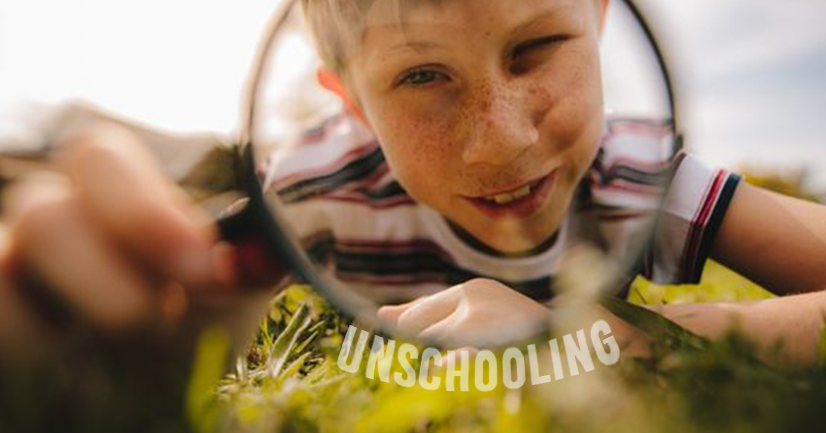"Why schooling a sardine when you can raise a dolphin?"
Have you ever considered the true purpose of education? Our society often emphasizes academic knowledge and conformity, but is that truly the path to nurturing thriving children? As parents, we have made the conscious decision to "unschool" our two young children, and in this blog post, I'd like to share some of the reasons behind our choice.
Unveiling the True Meaning of School
Let's take a moment to reflect on what the word "school" actually means. According to the dictionary, it refers to "a large number of fish or aquatic animals of one kind swimming together." While this definition might seem surprising, it sheds light on an essential aspect of traditional schooling: conformity. Schools often expect children to conform to a specific set of rules and behaviors, akin to a school of fish swimming in unison.
However, we believe there's a more inspiring alternative. Imagine your child as a playful dolphin, freely exploring the vast ocean and relishing every moment. Dolphins exude joy and embrace their natural instincts, while fish in a school seem perpetually fearful and easily influenced. Which experience would you prefer for your child?
Unleashing the Potential of Individuality
Many people view school as a place for acquiring knowledge, but upon closer observation, it becomes clear that the primary focus is on shaping behavior. In today's age of information technology, knowledge is readily accessible to anyone with an internet connection. Countless online resources provide infinite knowledge and access to the best teachers. In contrast, traditional schools assign teachers without considering individual needs and preferences. We all remember the few exceptional teachers we encountered, but most were average, and there were certain subjects we struggled with or disliked due to the teacher's influence.
What truly concerns us is how schools mold children into a specific mold, teaching them to unquestioningly comply with authority without providing opportunities for critical thinking or alternative choices. In the rigid structure of a school, there's no room for discovery or self-expression. The curriculum is set, and compliance is expected. Is this truly how we envision our children flourishing like dolphins?
Breaking the Mold: A Personal Reflection
I'll admit it—I didn't enjoy school, and it seemed that school didn't particularly like me either. It felt more like torture than a place of growth and exploration. As I delved into conversations about school experiences with others, I discovered that most people shared a similar sentiment. The fond memories they cherish aren't related to the classes they attended or the knowledge they gained, but rather the friendships they formed. It struck me as paradoxical that people who disliked school would still subject their children to the same system, believing it to be the only viable option. It appears there's a misalignment—a forceful imposition of an experience we didn't enjoy ourselves. It's no wonder that many adults find themselves dissatisfied with their jobs. We have internalized the belief that there's only one way to learn and succeed, accepting discomfort and frustration as a necessary part of life.
But what if there's a better way? Enter unschooling—an educational philosophy that believes children learn best when they are immersed in everyday life, engaging with their surroundings and circumstances. Unschooling is often synonymous with child-led learning, interest-based learning, or delight-directed learning. While unschooling families may differ in their adherence to specific principles, they all share a common desire—to instill in their children a lifelong love of learning, recognizing that education is an ongoing journey. Many unschooling parents embrace the concept of "strewing," creating an environment rich in engaging materials that stimulate natural curiosity. Unschooling offers numerous advantages, including enhanced retention, nurturing natural talents, and fostering strong self-motivation.
The Joy of Unschooling: Personal Testimonials
From our personal experience, embracing unschooling has been one of the best decisions we've made for our children. They radiate joy, exhibit boundless curiosity, and are always eager to share what they've learned. As the saying goes, "The best way to learn something is to teach it," and our children embody this principle naturally. Each day, they eagerly share their newfound knowledge with us, an experience I never had during my own childhood. What astounds us even more is the deep connection we've developed with our children. It feels more like a friendship rather than an authoritative parent-child relationship. Without the confines of a strict schedule, our children have the freedom to express themselves, and even in moments of disagreement, there's no build-up of frustration. We allow them the time to process their emotions. Similarly, since we don't impose rigid timelines for their learning milestones, there's no pressure on them to achieve specific goals. Learning happens organically, and in fact, goals often hinder the natural learning process.
Addressing Concerns and Unleashing Curiosity
Now, you might be wondering, "How will they learn essential skills without guidelines?" Consider this: How did people learn before formal schooling existed? Education happened through life experiences, within the context of their families and communities. Furthermore, let me share an anecdote about our 5-year-old daughter. She possesses knowledge about animals that we, as parents, weren't even aware of. How is that possible? The answer is simple—children possess an innate curiosity, and when given the freedom to explore, they absorb knowledge at a remarkable pace. Schools, with their fixed curricula, can only dream of achieving the same level of absorption. Children genuinely desire to learn; all we need to do is provide them with the tools and opportunities.
Observing our children's learning journey has unveiled another fascinating aspect—their ability to find balance throughout the day. They might spend an hour engrossed in an educational video about marine life and then switch to something light-hearted and entertaining for half an hour. Outdoor play follows, and later they might return to the educational marine life video, determined to understand every aspect. Their natural inclination to learn is astonishing when given the freedom to be themselves.
Embrace the Natural Path to Thriving Children
In conclusion, we firmly believe that the most effective way to educate children is by allowing them to learn through life experiences, side by side with their parents. It is a natural and intuitive approach, prompting us to question why we ever invented schools in the first place. By granting our children the time and space they need to grow, they will thrive in ways beyond our imagination.
So, dear parents, let go of the traditional mold and embrace unschooling. Embrace the dolphin mentality and watch as your children revel in their curiosity, love for learning, and genuine connection with you. Education isn't confined to the walls of a classroom—it's a lifelong journey of exploration and growth. Your children deserve nothing less than the freedom to become the dolphins they were born to be.




